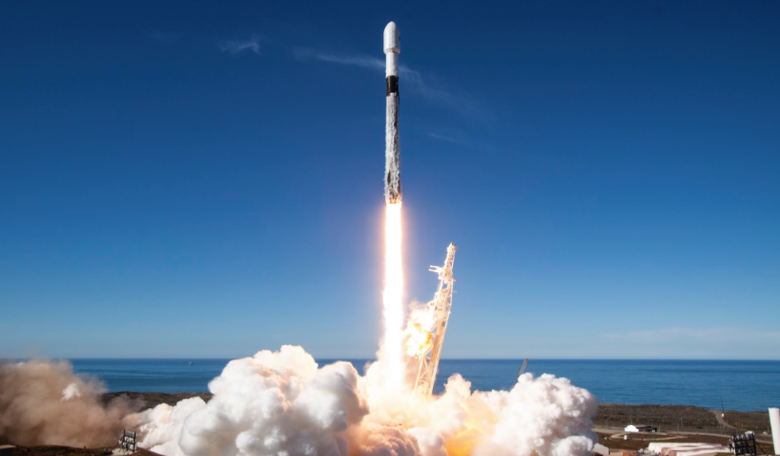Yesterday marked a new high for SpaceX in terms of numbers and recyclability. Not only did the company loft 64 payloads into orbit in one go – the largest single rideshare mission from a US based launch vehicle to date – but it also re-used a booster successfully for the third time.
Originally scheduled for the 2 December, the packed mission, named Spaceflight SSO-A: SmallSat Express and SpaceX’s 19th launch for 2018, eventually took to the skies yesterday from the Space Launch Complex 4E (SLC-4E) Vandenberg Air Force Base in California, following a flawless launch.
After delivering a rocket-load of satellites, SpaceX’s Falcon 9’s first stage completed a succession of burns to land without a hitch on the autonomous, “Just Read the Instructions” droneship, which was stationed 50 kilometres off shore from the launchpad in the Pacific Ocean.
SpaceX have been attempting to capture the payload fairing after it falls to Earth following main engine cut-off, stage separation, and ignition of the second stage engine. As high-tech as SpaceX is, a simple, but big net hanging from the company’s boat, Mr Steven, was the implement of choice to catch the fairing if possible. Unfortunately, the fairing could not be netted but it instead touched down softly in the water.
“Plan is to dry them out and launch again. Nothing wrong with a little swim,” noted Elon Musk via Twitter.
Meanwhile, up in space, backed by 200,000 pounds of thrust in the vacuum of space, the second engine ensured the release of 64 payloads from 34 organisations into a low-Earth orbit in six separate deployments spread around the globe.
The mission included 15 microsats and 49 cubesats from commercial and government entities, including universities, startups, and even a middle school. The payloads, which vary from imaging satellites, technology demonstrations to educational research endeavours, are from 17 countries, ranging from Europe, the Middle East, Asia and Australia.
SpaceX is now busy preparing for its 16th resupply mission to the International Space Station tomorrow (5 December) at around 1.16pm ET/18.16 GMT from the Space Launch Complex 40 at Cape Canaveral Air Force Station in Florida.











